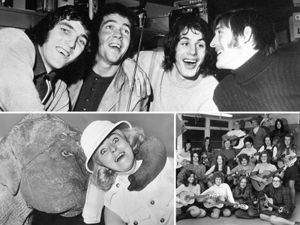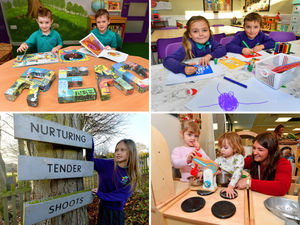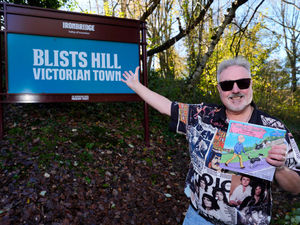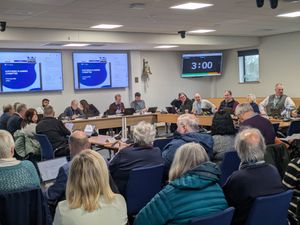MMR jab: Measles and needles in vaccination battle
The number of parents having their children vaccinated for measles, mumps and rubella is falling, and doctors fear that could seriously affect young people.
Early this year, the World Health Organisation called the anti-vaccine movement “one of the worst health threats facing humanity”.
Parents refusing to have their children immunised against measles, mumps and rubella threatens to “reverse progress” in tackling preventable diseases, the UN’s health body said.
At the same time, there was a 30 per cent spike in measles cases worldwide, including in several countries where the virus had been virtually eliminated.
Across England, take-up of the vaccine has fallen, with NHS chief executive Simon Stevens also blaming anti-vaccine messages increasing prominence as “part of the fake news movement”.
The decline in take-up of the vaccine has also been reflected in Shropshire Latest figures show that between April and September 2018, 90.5 per cent of children turning five had received the recommended two MMR jabs in the county and 87.2 per cent of children in Telford & Wrekin.
Shropshire Star comment:
This means around 148 children in Shropshire are not fully vaccinated, and 155 in Telford.
But in 2014, 92.2 per cent of five year olds in Shropshire had the full course of vaccinations, according to Public Health England. Take-up has also dropped in Telford where 93.7 per cent of five year olds were vaccinated five years ago.
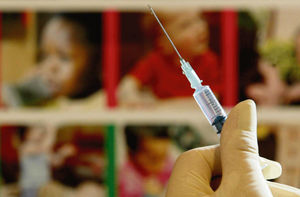
The target, set by the World Health Organisation, is for 95 per cent coverage.
Why the drop?
The reason for the drop is not is not clear. Rates dipped in the 1990s following publication of a report by now struck off doctor Andrew Wakefield linking MMR to autism, but partly recovered after that research was discredited and disproved.
The volume of anti-vaccine sentiment on social media has swollen in recent years.
But a recent Public Health England survey suggests parental confidence in vaccines is very high and that there is currently little evidence that anti-vaccine social media activity has had a major impact on vaccine coverage in England.
Dr Alison Teale is the screening and immunisation lead with Public Health England West Midlands, and she says that while England is a world leader in administering vaccinations it is still a concern that numbers have dropped.
“Although coverage remains high, vaccine coverage for most childhood vaccines has been slowly decreasing since 2012-13, meaning some children have missed out and may remain vulnerable to serious or even fatal infections,” she says.
“This could be for a variety of reasons including cultural or religious beliefs, people forgetting to book vaccinations or get the second MMR dose due to moving area, and some people who decide not to vaccinate their children.
“We want every child to benefit from the UK vaccination programme, and therefore encourage all parents to ensure their children are up to date for all their childhood jabs. We are working closely with the NHS, and with staff in general practice where most vaccinations are delivered, to improve uptake.”
A parent's choice
Jan Phillips, 40, from Pant, near Oswestry gave birth to her son Tom in 1998 at the height of the autism scare. He was given the MMR vaccination at about 12 months old, and later developed autism – which his mum feared was to do with the vaccination.
“He was a textbook baby really,” says Jan. “It was like that until he was about 12 to 15 months old when his personality started to change.
“I felt like a terrible mother.”
But Jan says she always knew that vaccinating children was essential, especially given her own mother had a serious case of measles.
“Measles, mumps and rubella are very dangerous,” she says.
Four years later when her daughter Heather was born in 2002 Jan wanted to get her daughter vaccinated, but paid privately to get the vaccinations done individually.
As a baby Heather was diagnosed with galactosaemia, a rare genetic metabolic disorder that affects an individual’s ability to metabolise the sugar galactose properly.
“At the time she was diagnosed my son was four and and his behaviour was very difficult. At the time we thought we weren’t going to take the risk [with Heather] and had the vaccinations done separately,” Jan says.
But Heather also developed autism – which Jan says is a symptom of the galactosaemia. Jan says that both her children would have had autism regardless of whether they had been given the MMR. She now says she doesn’t know how to tackle anti-vax attitudes.
“When they bought in the cervical cancer vaccination there were parents saying no,” she said. “There were parents saying that all these vaccinations can’t be good and every time there is a new vaccination this is going to happen.
“What I would say is that people need to be educated on the dangers of not getting children vaccinated. In antenatal classes you do not get this education, parents take advice from other parents and it can create a cycle.”

